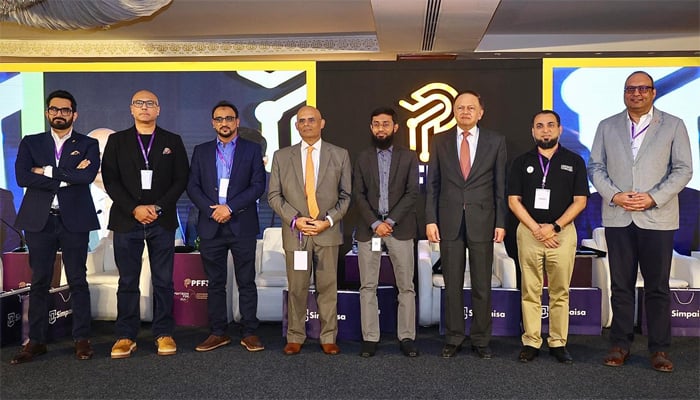
"AI Ignited: Powering Pakistan’s Fintech Next Decade," one of the dynamic panels at the Pakistan Fintech Forum III, was organised, where industry leaders came together to explore how artificial intelligence (AI) is redefining the future of finance.
Notably, AI is no longer a theoretical frontier; it is actively reshaping how Pakistan saves, spends, lends, and accesses financial services.
The third edition, held in Karachi, was marked by pragmatic conversations around data-driven innovation and the requirement to embed intelligence into financial systems today to remain competitive tomorrow.
The AI-focused panel, moderated by Walee Financial Services and Hakeem Easy Finance CEO Noshad Minhas, delved into the real-world effect of AI across payments, lending, risk assessment, and customer experience.
“Technology, finance, and inclusion are no longer operating in silos,” Minhas stated. “They are converging to redefine the trajectory of Pakistan’s economic future.”
The Bank of Punjab CEO Faisal Ejaz Khan emphasised the requirement to move beyond buzzwords and ensure AI deployment serves clear institutional goals.
He said: “Technology alone is not the solution; its value lies in solving meaningful problems and driving measurable outcomes for institutions and their customers.”
Notably, the panel noted how AI is unlocking new levels of agility for fintechs and financial institutions alike, from faster credit decisions to more relevant product recommendations.
However, speakers warned that data and technology must be paired with intent and inclusion to truly serve the needs of Pakistan’s diverse population.
Providing a product innovation perspective, JazzCash CPO Aamir Aftab talked about the company’s multi-pronged AI approach, combining traditional machine learning with generative AI to build more intelligent, accessible, and responsive financial services.
“We implemented a suite of AI-driven initiatives at JazzCash to enhance risk management, customer engagement, and product personalisation,” Aftab stated: “A supervised ML-based model now helps us predict loan defaults with nearly 90% accuracy, enabling earlier interventions and reduced losses. We’re also using behavioural data to segment users across Lending, Insurance, and BNPL, and then applying GenAI to create detailed user personas that drive hyper-personalised marketing. Our next step is a voice-enabled AI insurance assistant that makes financial literacy and support more accessible, particularly for underserved segments.”
The platform processes over Rs1 trillion in payments monthly, equivalent to 10% of Pakistan’s GDP, and serves more than 50 million users.
Codebase Technologies Managing Partner Raheel Iqbal expanded on this intersection of innovation and impact, stating: “The real transformation will come when innovation is paired with purpose, using digital tools not just to build better financial products but to create access, trust, and opportunity for millions.”
It is worth noting that in a country like Pakistan, where over half the population remains underserved by traditional banking, this technological shift showcases not just an opportunity for innovation but a critical lever for long-term economic resilience and growth.
















